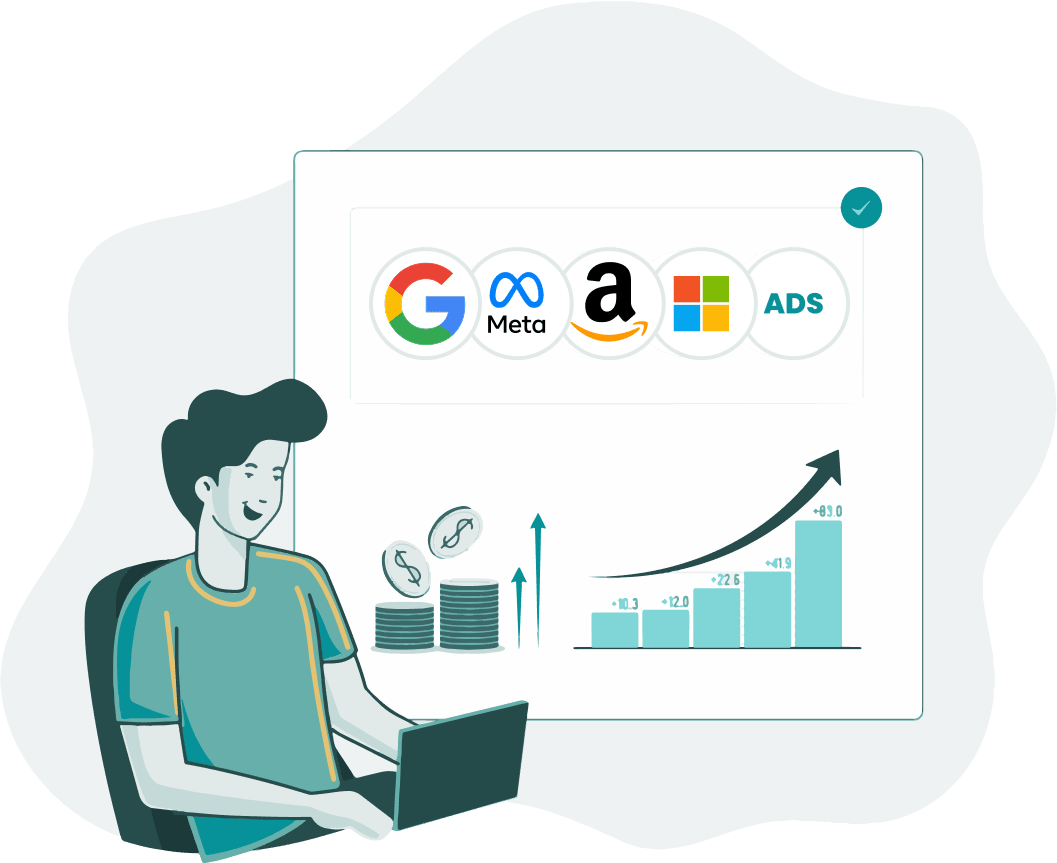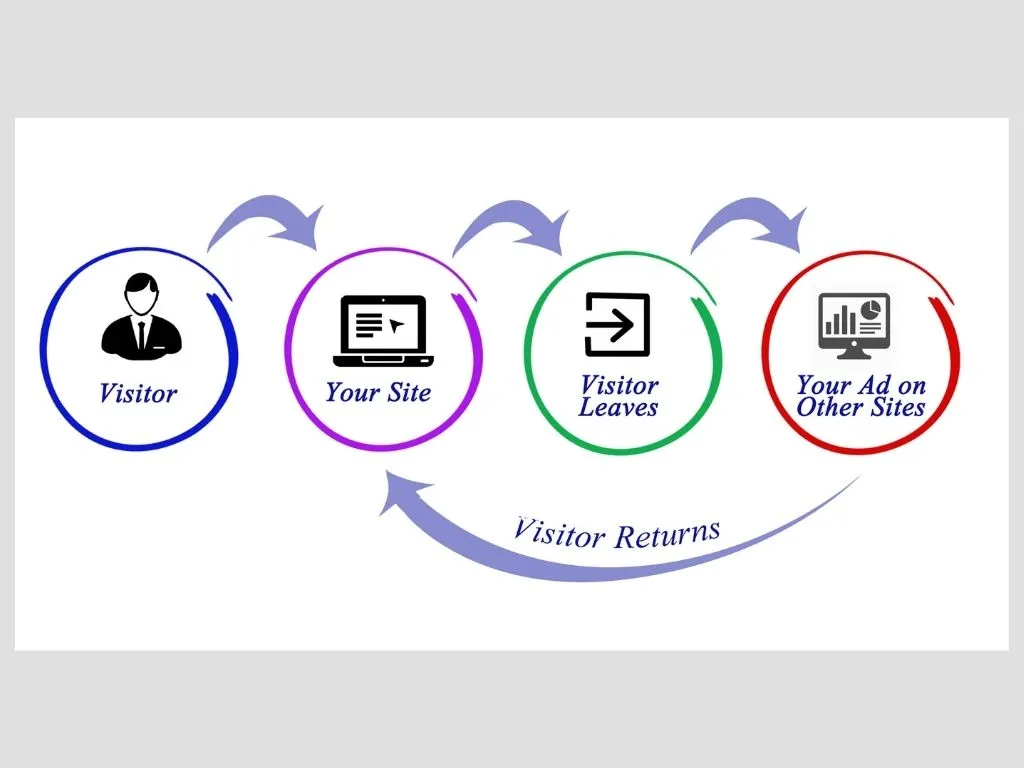Anybody can track conversions. Smart marketers track leads. Why is this lead identification information important?
It’s not enough to know that someone called your business. You need to know more such as:
- Who are they?
- What do they want?
- Do they have the budget for your product?
- Are they a quotable lead?
A conversion is not necessarily a lead, which is why it’s a bad idea to base your marketing decisions on conversions alone. In this article, we’ll explain how leads are different from conversions.
We’ll also go into detail regarding how Google Ads tracks conversions. As you’ll see, there are some limitations to the amount of information that Google Ads can track.
Next, we’ll describe how you can track individual leads instead of simply tracking conversions. We’ll also reveal how this enhanced data can be used with a tool like Optmyzr to improve your entire Google Ads strategy.
The Limitations of Google Ads Conversion Tracking
Google Ads is a powerful tool that does have some limitations. Issues arise when you try to track individual leads and measure lead quality.
Conversions vs. Leads
Conversion numbers tell you how many people took an action; lead data tells you who took action and whether they’re a sales-ready lead.
When tracking forms, chats, and calls, individual lead data tells you more than raw conversion numbers do. Google Ads can track these conversion actions, but it only shows total conversion numbers.
You’ll see the total number of leads from each conversion action, but not the identifying information for individual leads.
Google Ads has a phone call conversion tracking system that can track calls from call extensions on ads. It can also track calls from ads that have a location extension with a call option.
Unfortunately for marketers, Google’s built-in call tracking tool is not as effective as the third-party call tracking tools on the market.
Google’s call tracking feature tells you call conversions are coming in from ads, but you won’t know anything about the lead except that they saw your ad and called your business. You won’t know if they’re quotable leads.
Identifying quotable leads
Every business identifies quotable leads differently. Some simply look at the lead’s budget. Others look at their geographic location. Still, others look at the product fit.
All this information can usually be found in call transcripts, but Google does not provide these.
Screening non-qualified leads in Google Ads
Google Ads does have one way to screen non-qualified leads; by only passing along conversions if the call lasted over a minute.
The problem is that many calls can last 60-seconds and still not result in a qualified lead:
- What if a solicitor calls your company and manages to stay on the phone for 60 seconds?
- What if an existing customer calls your company to speak with support for over a minute?
- What if a prospective customer calls your company but their budget doesn’t fit your product?
These are all non-qualified leads, and passing them along to Google Ads as conversions can skew your marketing reports. You may end up thinking an ad is working when it’s not. The longer you think that, the more marketing dollars you waste.
Google Ads can also track forms and chats, but the same limitations apply. Your Google Ads reports will only show the total number of conversions from each ad, separated by conversion type. You will not be able to see call transcripts, chat transcripts, or lead contact information.
This is where all the important lead information is contained; the data that tells you whether or not the lead is worth your time.
Running a Google Ads campaign costs money. In return, you want leads that drive revenue. Conversions alone are not necessarily worth any revenue, but quotable leads are.
Let’s find out how to make sure we’re getting quotable leads in return for ad spend.
How to track individual lead data with Google Ads
Lead tracking software fills in the gaps in your Google Ads data. Software like WhatConverts can integrate with Google Ads so you can see individual lead data, mark leads as quotable, then pass them to Google Ads as rock-solid conversions. Passing only quotable leads into Google Ads will improve your entire PPC strategy.
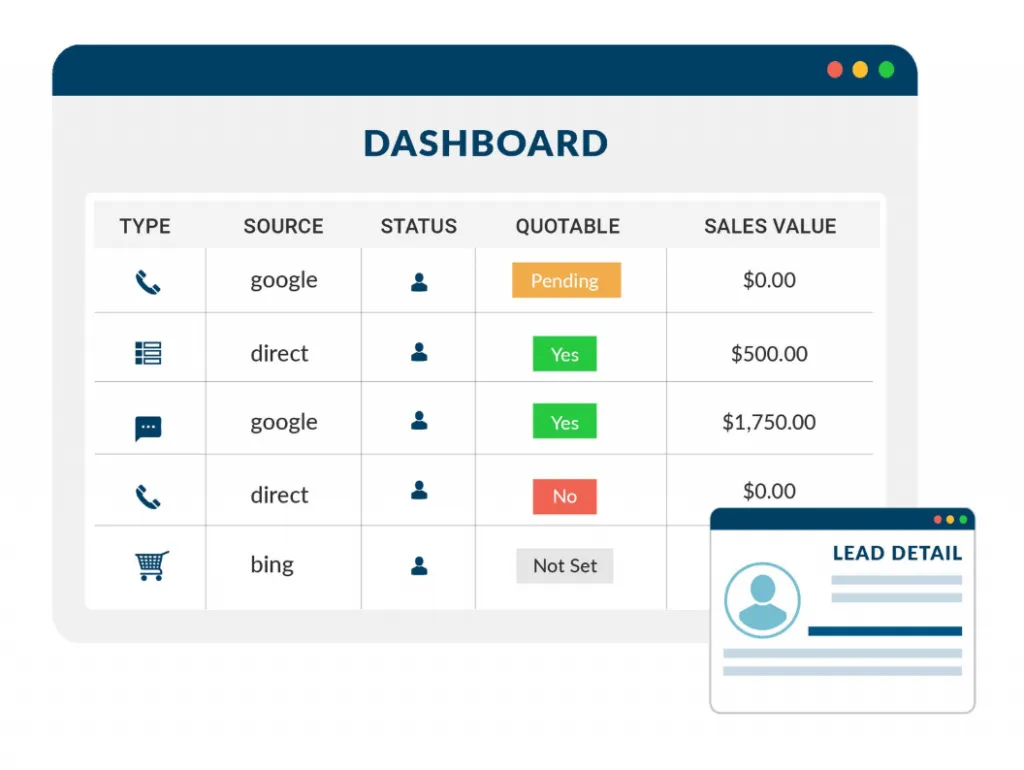
What about when it comes time to optimize your Google Ads? Optimization means identifying the ads that work, then shifting marketing spend towards effective ads and away from ineffective ads.
You won’t know what ads work if you’re only tracking conversions. If you can identify the ads that actually drive quotable leads, however, you can optimize accurately.
How to send quotable leads to Google Ads
A lead tracking system like WhatConverts allows you to easily mark leads as quotable or not quotable. For phone call leads, you can simply press “1” after the call if the lead is qualified or “2” if they aren’t. You can also assign sales value for phone call leads during this step.
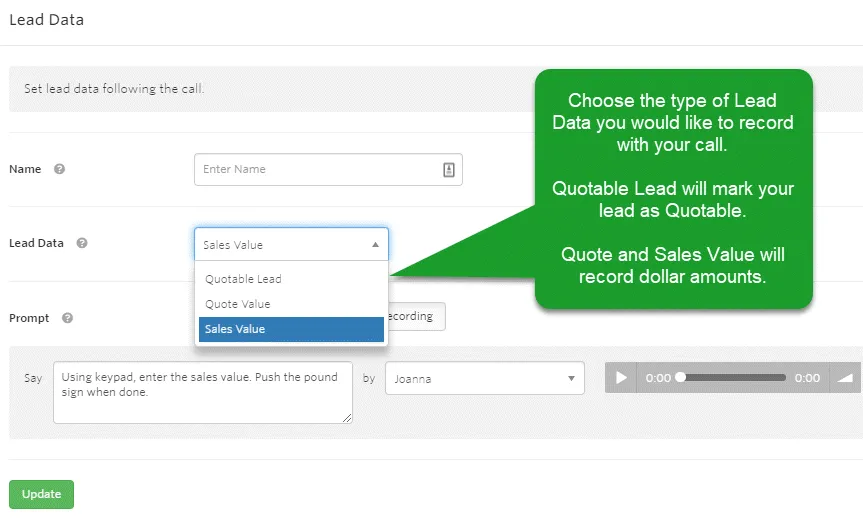
For all leads, you can mark leads as quotable with one click of a button in your leads dashboard or in the email notification for the lead. Once you’re marking leads as qualified, it can greatly improve your marketing reporting. Here’s an example of how qualified lead reporting reveals more about how many leads come from individual keywords.
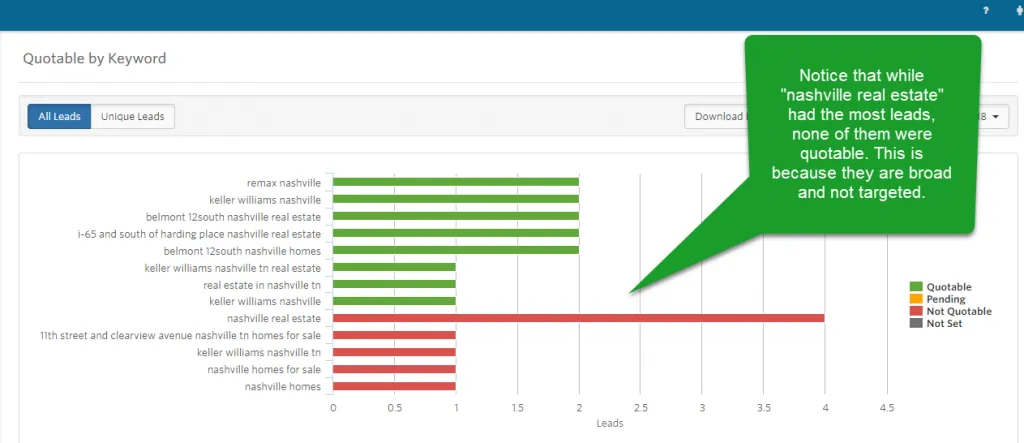
You can use WhatConverts to only pass conversions to Google Ads if they meet certain parameters such as, “only pass along the conversion if the lead is marked as qualified" (quotable). You can also choose to only pass along conversions if the lead is assigned a sales value in WhatConverts or your CRM.
Use Optmyzr and Lead Tracking Software to optimize Google Ads
Running a successful Google Ads campaign involves measuring a lot of variables. You don’t just want to know that your Google Ads drive quotable leads; you want to know which ad groups, ads, keywords, and landing pages drive quotable leads.
Once you have this information, you can optimize ads with a tool like Optmyzr. The more information you feed into the optimization system, the easier it is for Optmyzr to make useful suggestions about how to optimize ads.
If you pass every conversion to Google Ads without marking them as quotable, Optmyzr will make suggestions based on the conversion data alone. That means you could end up shifting marketing spend towards keywords and campaigns that drive solicitations or support calls from existing customers.
Taking the extra step to pass only quotable leads to Google Ads gives Optmyzr better data. Optmyzr can make suggestions to shift marketing spend towards keywords and campaigns that drive quotable leads and revenue.
This is a better way to increase return-on-investment for Google Ads. Since Optmyzr makes suggestions based on your Google Ads data, it’s important to make sure that Google Ads data is accurate and actionable.
Lead Tracking Tools work with Optmyzr to Improve PPC Performance
The more you optimize Google Ads based on sales-ready leads, the easier it is to identify the ads that drive the most revenue. When it comes time to show reports detailing how your Google Ads performed, you want to be able to prove that the business is getting a return on investment.
The best way to do that is by showing which ads delivered quotable leads. Using lead tracking tools with Optmyzr makes this possible, and easy.
This is a guest post. The views and opinions expressed by the author are solely their own and do not represent that of Optmyzr.
About the author
Mac Mischke is the Content Marketing Manager at WhatConverts, a call tracking software company for marketing agencies.





